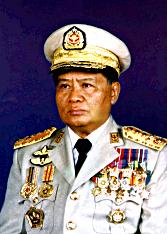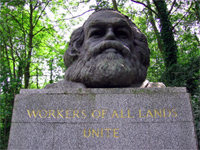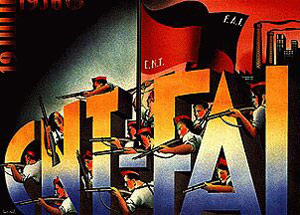 Home: Blog: 2006-02-12 Imagine...
Home: Blog: 2006-02-12 Imagine... Home: Blog: 2006-02-12 Imagine...
Home: Blog: 2006-02-12 Imagine...Imagine there's no countries,
It isnt hard to do.
From Imagine by John Lennon
When humanity has truly grown up, it will look back on the division of the world into states, and the restriction of the right of humans to travel, live, and work where they wish, as a kind of world apartheid. We will wonder, I think, how we ever felt it was justified, or even meaningful, to speak of a human being's statehood.
We will understand, of course, the material history and the social causes which lay behind states, in the same way that we understand the history of apartheid itself, or slavery, or the treatment of women as property or 'chattel'. But intellectual understanding does not educate the imagination, and we will wonder how we ever managed to escape awareness of the obvious fact that there is but one, common humanity, and that all rights spring from it alone, and not accidents of race, sex, or geography.
 UN: no embarrassing questions about membership
UN: no embarrassing questions about membership
States are pens into which humanity is divided for the purpose of being ruled over and exploited by minorities. They exist to limit human freedom: money and goods travel the world freely, while humans are kept in check by passports and border controls.
 General Than Shwe
General Than Shwe
Corrupt Military Tyrant
of Burma (Myanmar)
Welcome at the UNIf you doubt my definition of a state, consider this. All but two of the world's generally recognised 193 states are members of the United Nations (the two outside being Taiwan and the Vatican City State). UN membership is the ultimate badge of international recognition for your government.
But must a UN member government demonstrate that it rules through the will of its people? By no means: dictatorships and feudal oligarchies of every kind send delegates. To be recognised by the United Nations, all that matters is that a government hold power: it doesn't matter how it is held.
Indeed, so non-judgemental is the UN that should a coup d'etat replace one dictator with another, after a reasonable delay to ensure that the new thugs are securely in office, they too can join the club. The UN doesn't ask embarrassing questions about how you came to govern. The currency is pure realpolitik: if you rule, you're in.
In fact, United Nations is a cartel for the world's ruling classes. Each claims the right to its own people, but cannot resist poaching from its neighbours when it can. Like any cartel, the UN attempts to negotiate non-competition agreements, but these rarely survive the grasping self-interests at play: particularly when their relative powers are so ill-balanced.
But whatever state rulers gain and lose playing poker at the UN, or calling bluffs by force of arms outside it, one thing remains the same. Their populations lose. In peacetime they lose their freedom to travel, reside, and work where they wish. In war, they lose their lives.
A nation is held not to be a state - a governed territory - but a 'people'. The distinction is not academic. In every part of the world there are political movements seeking to establish states as homes for their 'stateless nations', from the Scottish National Party in the British isles to the Palestinian Liberation Organisation in the middle east. Some stand for election, some carry out acts of individual terrorism, and some are fighting wars: but each has in mind the same ideal, a 'nation state': a state which is a home to a particular 'people'.
 Plaid Cymru: Party of Wales
Plaid Cymru: Party of Wales
Would Welsh 'independence'
help the people of Wales?As a socialist, for most of my life I have accepted the orthodoxy that there exists a 'right to national self-determination', and that we should support any struggle to that end. I now believe that I was wrong, that the left is wrong, and that the damage caused by this mistaken idea is second only to that caused by the disasterous support some socialists continued to give the Soviet Union once it had descended into Stalinist dictatorship.
At first hearing, the very sound of a 'struggle for national self-determination' suggests that it is democratic and progressive. To throw off the yoke of imperial government, to fight the occupiers and the foreign-appointed governors: it all sounds just. And yet what does it amount to?
Having thrown off foreign rule, the ex-colonies of the British empire have largely established their 'own' governments. Has this seen their peoples achieve freedom and plenty? In most, undemocratic foreign rule has been replaced by undemocratic home rule. Different men command the guns, but the people themselves still stare down the barrels.
Worse, the old colonial rulers retain all their former power through overpowering military supremacy and economic dominance. What the UK once controlled through occupation, the US now controls through their manipulation of trade backed by the implicit threat posed by their sole superpower status. The EU is desperately clubbing together to compete, and the 'great game' of rival empires continues. The new 'home' governments of ex-colonies are allowed to line their own pockets and bully their populations, but are otherwise kept it in line.
 Marx's epitaph:
Marx's epitaph:
WORKERS OF ALL LANDS UNITE!However, that is not the worst of it. The question remains, when socialists have supported demands for 'national self-determination' - which can only mean the right to form nation states - have we expected it to bring freedom and plenty?
The shocking answer is no. Socialists are internationalists, and do not believe the that socialism or justice can exist within a single state: the results of Stalin's 'socialism in one country' proved that forever. As a result, our most famous slogan has always been: workers of the world, unite! We demand first open borders, and ultimately the abolition of states altogether. We believe that states exist to oppress!
The support for national self-determination is used as a tactic. It is based on the belief that one people oppressed by another - which is to say, by the ruling class of another - will be so focused on throwing off that imperialist, foreign oppression that they will be deaf to usual socialist argument: that the oppressed of all nations have a common interest.
 Anarchist poster from the Spanish Civil War -
Anarchist poster from the Spanish Civil War -
a revolution betrayedIt is an idea reminicent of Stalin's theory that before a country could become socialist, it had first to become a mature capitalist state, or its people would not be sufficiently 'advanced' to rule themselves: a policy devised in terror of a genuinely democratic socialist state being born which might undermine Stalinist control of Russia. The Russian-backed 'communists' in the Spanish Civil War, for instance, fought a battle within the republican forces to limit their aims to the restoration of the bourgeois parliamentary democracy, despite the fact that the Spanish people were ready to take power, and in large areas controlled by anarchist forces were already governing themselves. In the end, their fear of the Spanish people achieving liberty was greater than their fear of the fascists, and Spain was betrayed into forty years of Francoism.
It can be seen that when revolutionaries limit their demands to what they see as the 'limited perspective' of the people they claim to 'lead', this patronising nonsense does enormous harm. It is entirely proper to distinguish what can be achieved today from what can only be achieved tomorrow, but only if tomorrow's aim really cannot be won today, and never by pretending today's aim is the end in itself.
It might be objected that 'struggles for national-self determination' do sometimes have progressive outcomes. For instance, is not the parliamentary democracy in India preferable to British rule? Would not a state of Palestine at least help to secure the land and living rights of Palestinians? Would the expulsion of the US from Iraq be a blow against imperialism there, but throughout the world?
 The reality of nation states
The reality of nation states
US coast guard intercepts refugees desperate to escape HaitiThe answer to all three questions is undoubtedly yes. However, it is one thing to critically support a movement on the grounds that it will be progressive. It is quite another to hold up the right of nations to self-determination as a general principle. The fight for freedom may involve establishing or defending certain states along the way, but ultimately, in a world freed from states, from government, and from the nationalist propaganda used to divide humanity and defend war, humanity will shed the nonsense of 'nationality' as quickly as South Africans have dropped that of the old apartheid 'homelands'.
If socialists oppose the the state, how much more should they oppose the nation state. It is bad enough that people should be penned by the world's rulers like cattle owned by farmers. It is worse that such states should attempt to exclude those of the wrong 'nation' or 'people' or race. In attempting to harness the power of struggles for national self-determination to the socialist cause, we have dragged our own movement into the mud of nationalism. The right of self-determination is not national, but the right of every individual, and of all humanity. It includes to right to determine where to live and work, regardless of states, or borders, or 'nationality'.
Humanity's freedom will not be won by building new states, but by destroying them all.